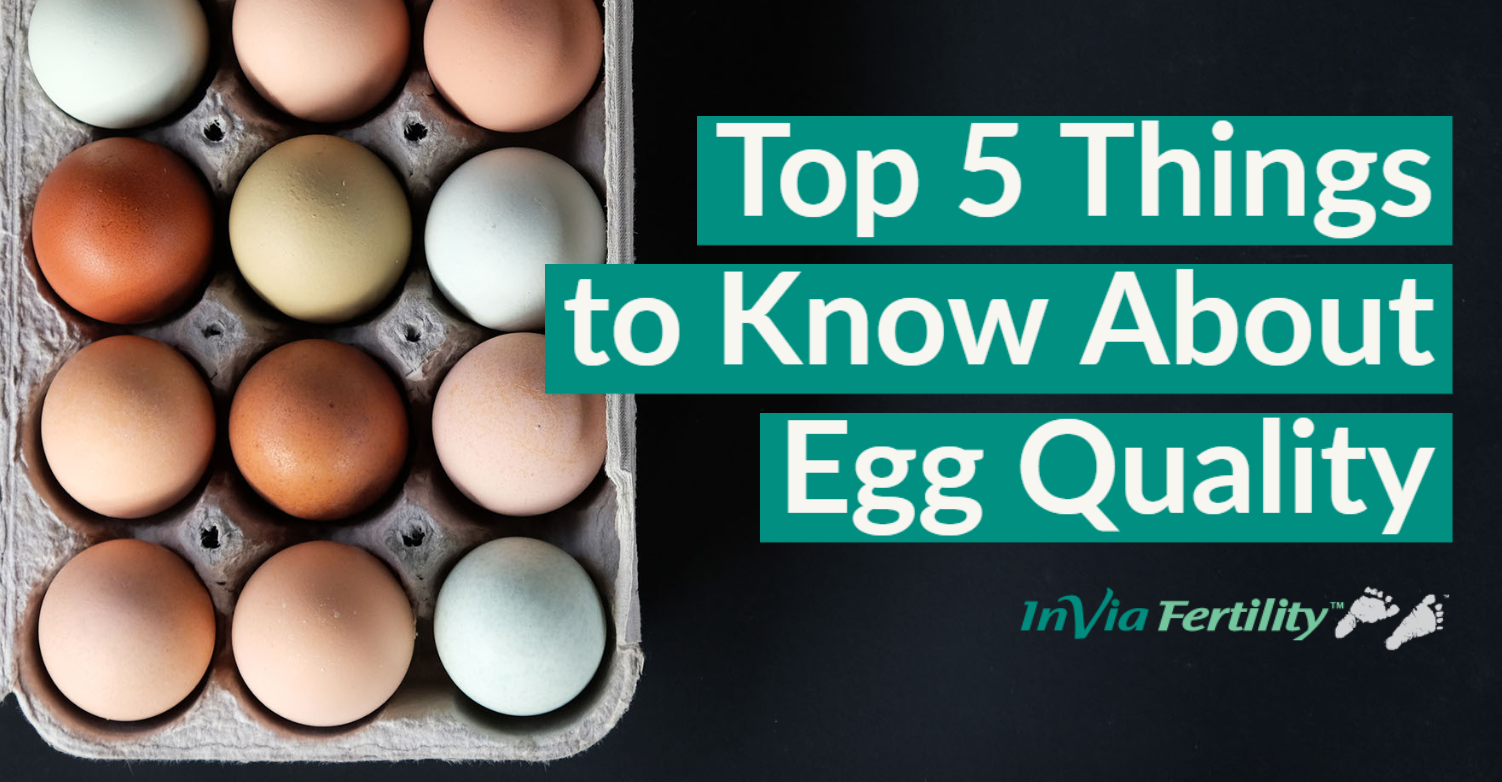We are experiencing a very high volume of calls and messages and ask for your patience. We will answer your portal messages within 48 hours.
We are experiencing a very high volume of calls and messages and ask for your patience. We will answer your portal messages within 48 hours.

When undergoing an IVF cycle, you have a lot on your mind. If you are like most people, egg quality is typically not first on the list.
However, egg quality is one of the single most important aspects of a successful IVF cycle. With high egg quality, IVF is more likely to succeed. Good quality embryos come from good quality eggs.
To help increase your knowledge and awareness of egg quality, I have put together a list of the top five things you should know. I hope it makes your journey to parenthood a little bit easier.
At birth, women are already born with all of the eggs they are ever going to make. There is no constant replenishment like there is with sperm. Instead, eggs ripen and are released from the ovaries each month (ovulation), usually one at a time. Over time, the ovaries lose the ability to release the eggs, and ovulation will eventually stop (menopause). Typically, menopause occurs when a person with ovaries is around 50 years of age, but it can happen many years before this. This is not something to fear, just to understand. This variation in age is one of the reasons why the number of eggs retrieved in an IVF cycle varies from patient to patient.
When you come for egg retrieval, you can’t compare the number of eggs you have retrieved with the number someone else might have retrieved. There are no “bragging rights” for egg number. Quantity does not always equal quality! Keep in mind at your retrieval that the number of eggs you retrieve is not always predictive of cycle success and even those with small egg numbers can achieve a pregnancy.
Egg quality is, no doubt, affected by age, but, this is not the only factor! There are ways to help improve the health of the ovaries and the egg quality. The other factors most important in egg quality are, our diet, environmental influences, hormonal issues, and stress. If you would like to know more, please contact one of our physicians so that you may discuss ways in which egg quality can be maximized and what we can do to use influences on egg quality to our advantage.
We know that certain conditions affect egg quality. Some of these are endometriosis, history of ovarian surgery, smoking, chemotherapy/radiation, and certain genetic conditions. If one of these categories applies to you, it is important to discuss with your physician any ways that may help positively influence egg quality.
Just because testing determines that you have decreased or poor egg quality, this does not mean that you won’t get pregnant. It may mean that it will be more difficult to get pregnant, but, depending on the situation, it does not necessarily mean you can not achieve a pregnancy. If poor egg quality is a factor in your infertility and attempts to improve egg quality do not work, knowing this can help to make the decision to use donor eggs a bit easier.
Sometimes being realistic about your fertility is the best approach you can take. Despite doing everything possible to improve egg quality, you may still not achieve a pregnancy. Finding a good, caring physician, leading a healthy lifestyle, reducing stress, and keeping a healthy weight are things you can do to try and improve your fertility, but ultimately, you must understand that you’ve been dealt the hand you’ve been given.
There are no guarantees. If you have been told you have poor egg quality and have tried all efforts to improve it, moving forward and considering donor eggs can be the best chance for success.
To work with a fertility team that uses state-of-the-art technology to help patients get pregnant, make an appointment at one of InVia’s four Chicago area fertility clinics.
Infertility Infertility treatment IVF Conception InVia Fertility Specialists Embryology Top 5

Entire Website © 2003 - 2020
Karande and Associates d/b/a InVia
Fertility Specialists
